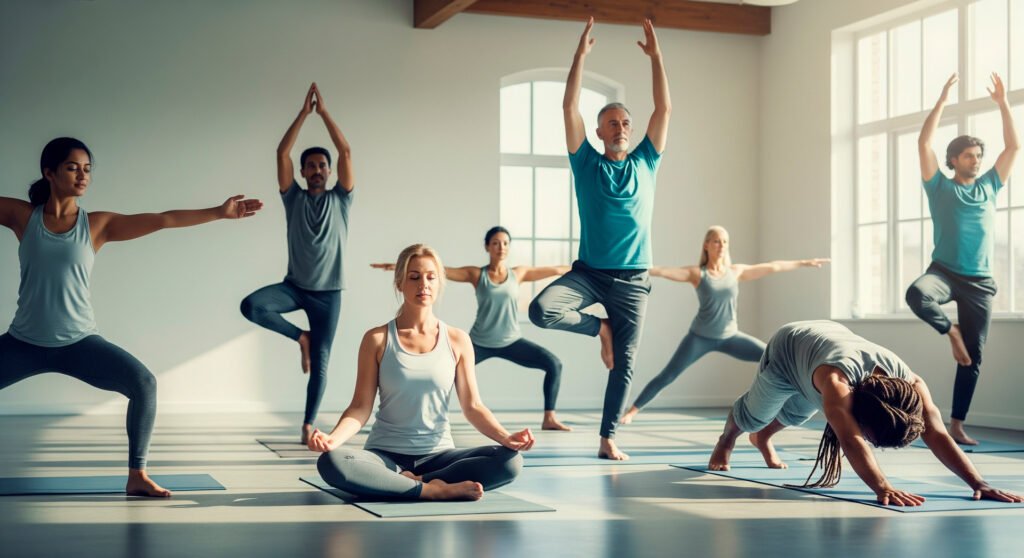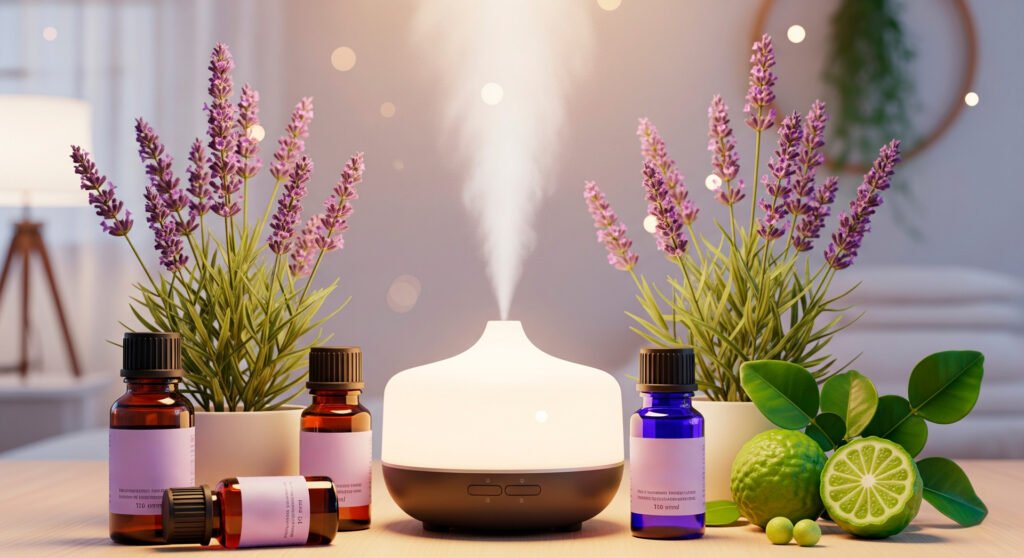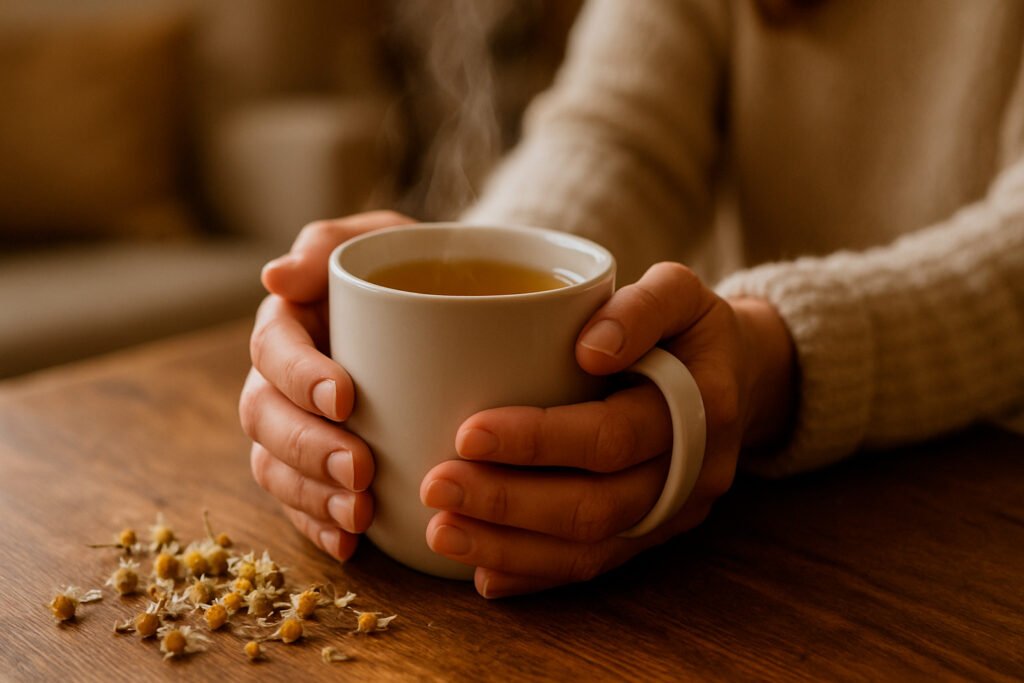Page Contents
ToggleFeeling overwhelmed by daily stress and looking for natural ways to calm your mind? You’re not alone. Millions of Americans between 30 and 60 are discovering that natural anxiety relief methods can be just as effective as conventional treatments, without the side effects.
Anxiety affects your body’s natural stress response, creating symptoms like increased heart rate, rapid breathing, restlessness, and trouble concentrating. While occasional anxiety is normal, persistent worry can snowball into more serious mental health challenges.
The good news? Research shows that natural approaches can significantly reduce anxiety symptoms and help you regain control of your daily life. Let’s explore ten proven methods that work.
For those whose anxiety manifests with physical symptoms such as dizziness or a feeling of being off-balance, understanding how natural supplements like Vertigenics can support your vestibular system, as detailed in our Vertigenics review, could be a valuable step towards regaining control.
Stay Physically Active for Mental Calm
Regular exercise is one of the most powerful tools for natural anxiety relief. A groundbreaking 2021 study following 400,000 people over 21 years found that physically active individuals have a 60% lower chance of developing anxiety symptoms compared to sedentary people.
When you exercise, your body generates beneficial changes in brain chemistry. Physical activity increases production of anti-anxiety neurotransmitters including serotonin, GABA, brain-derived neurotrophic factor, and endocannabinoids.
The American Psychological Association confirms that regular exercise enhances concentration and willpower, directly improving anxiety symptoms. Whether you choose high-intensity interval training, running, yoga, or Pilates, consistent movement helps divert attention from anxious thoughts while promoting mental clarity.

Limit Alcohol to Reduce Anxiety
Excessive alcohol consumption interferes with neurotransmitters that regulate mood, potentially creating an imbalance that manifests as anxiety symptoms. Research from 2019 revealed a strong connection between anxiety disorders and alcohol use disorder, with these conditions often occurring together.
Studies show that people who reduce or eliminate alcohol intake experience significant improvements in anxiety levels. While anxiety symptoms may temporarily increase when you first stop drinking, long-term benefits include better sleep quality, improved mood stability, and reduced anxiety episodes.
Quit Tobacco for Better Mental Health
The relationship between tobacco use and anxiety is complex but clear. A 2020 review confirmed that people with anxiety are more likely to use tobacco products, while a 2023 study demonstrated that quitting smoking reduces anxiety symptoms over time.
Nicotine and other chemicals in cigarette smoke alter brain pathways linked to anxiety and panic disorders. The Centers for Disease Control and Prevention recommends creating a comprehensive quit plan that includes professional support, distraction techniques, and a strong support system.
Manage Caffeine Intake Wisely
While moderate caffeine consumption is safe for most people, excessive intake can trigger or worsen anxiety symptoms. A 2022 review of 10 studies found that caffeine increases both anxiety and panic attacks in people with and without panic disorder.
The DSM-5-TR officially recognizes caffeine-induced anxiety disorder, which occurs when caffeine interferes with daily functioning. Caffeine triggers adrenaline release, activating your body’s fight-or-flight response.
If you want to reduce caffeine, gradually decrease your daily intake over several weeks to avoid withdrawal symptoms while allowing your body to adjust naturally.
Prioritize Quality Sleep
Despite CDC recommendations for 7 or more hours nightly, nearly one-third of adults get less than 6 hours of sleep. Poor sleep quality directly impacts anxiety levels and your ability to cope with daily stressors. This creates a frustrating cycle, as anxiety prevents the deep sleep your body needs to rebalance stress hormones like cortisol. If you’re looking for a supplement designed to help you achieve that deep, restorative sleep, our comprehensive analysis of Sleep Lean examines how it works.
Improve your sleep hygiene by:
- Going to bed when genuinely tired
- Avoiding screens in bed
- Keeping your bedroom dark and comfortable
- Writing down worries before bedtime
- Maintaining consistent sleep schedules
- Avoiding caffeine, large meals, and nicotine before bed
Practice Meditation and Mindfulness
Meditation focuses on gaining full awareness of the present moment, helping you identify thoughts without judgment. This practice leads to calm and contentment by increasing your ability to tolerate all thoughts and feelings mindfully.
Mindfulness-based cognitive therapy combines meditation strategies with cognitive behavioral therapy techniques for anxiety management. A randomized clinical trial found that mindfulness-based stress reduction meditation relieved anxiety symptoms as effectively as the commonly prescribed antidepressant Lexapro.
Combining these mental practices with physical support for your body’s sleep cycle can be a powerful strategy. Our detailed review of Sleep Lean explores a supplement that helps calm the system for the deep, restorative rest needed to manage anxiety and support metabolic health.
Eat a Nutrient Dense Diet
Your diet directly impacts anxiety levels. Low blood sugar, dehydration, and chemicals in processed foods can worsen mood and anxiety symptoms. High-sugar diets also negatively affect how you feel throughout the day.

Focus on eating a balanced diet rich in:
- Complex carbohydrates for steady energy
- Fresh fruits and vegetables for essential nutrients
- Lean proteins for neurotransmitter production
- Adequate water for proper hydration
Monitor how different foods affect your anxiety levels and adjust your eating habits accordingly.
Try Deep Breathing Exercises
Shallow, rapid breathing commonly accompanies anxiety and can lead to increased heart rate, dizziness, and panic attacks. Deep breathing exercises help restore regular breathing patterns and reduce anxiety symptoms in real-time.
Practice deliberate, slow, even breathing to activate your body’s relaxation response. This simple technique can be used anywhere, anytime anxiety symptoms arise, providing immediate relief and helping you regain control.
If you experience dizziness or a feeling of imbalance during anxiety or panic attacks, our Vertigenics review offers insights into a natural approach to support your vestibular system and potentially reduce these symptoms.
Explore Aromatherapy Benefits

Aromatherapy uses natural plant extracts and essential oils to promote mental, physical, and spiritual well-being. This holistic healing treatment has been used for thousands of years to support anxiety relief.
Essential oils can be inhaled directly or added to warm baths and diffusers. Research suggests aromatherapy may boost relaxation, improve sleep quality, elevate mood, reduce heart rate, and balance blood pressure.
Essential oils commonly used for anxiety include bergamot, lavender, clary sage, grapefruit, and ylang ylang. Always consult healthcare professionals before using essential oils and perform patch tests to ensure safety.

Drink Chamomile Tea Daily
A 2016 randomized clinical trial involving people with generalized anxiety disorder showed that chamomile significantly reduced anxiety symptoms and was safe for long-term use. Researchers suggest chamomile’s anti-anxiety properties come from apigenin, a flavonoid that engages GABA receptors at the same sites targeted by anti-anxiety medications.
Incorporating chamomile tea into your daily routine provides a gentle, natural way to support anxiety management while enjoying a soothing ritual that promotes relaxation.
When to Seek Professional Help
While natural methods are highly effective for many people, severe or persistent anxiety may require professional intervention. Mental health professionals often recommend cognitive behavioral therapy for anxiety management, which can be done in person or through online therapy platforms.
Medications like antidepressants and sedatives may help balance brain chemistry for severe symptoms. A combination of talk therapy, medications, and natural self-care strategies often provides the most comprehensive approach to anxiety management.
Your Path to Natural Calm
Natural anxiety relief methods offer safe, effective alternatives to conventional treatments. Regular physical activity, aromatherapy, deep breathing, mindfulness, and chamomile tea can significantly reduce anxiety symptoms when used consistently.
Remember that everyone’s anxiety experience is unique, and what works best for you may require some experimentation. Start with one or two methods that resonate with you, then gradually incorporate others as you build your natural anxiety management toolkit.
Your journey to greater calm and peace of mind begins with the first step you take today.
Sources
This article was inspired by and adapted to better serve the readers of Best Natural Health Products from “10 Natural Ways to Reduce Anxiety”. Healthline Media. Available at: https://www.healthline.com/health/natural-ways-to-reduce-anxiety. Accessed on: June 18, 2025.
Sarah Jenkins is a Senior Wellness Researcher and former science educator. She specializes in "Ingredient Provenance"—decoding complex clinical studies to ensure every product is safe and historically verified. Sarah translates dense medical data into actionable advice for families and individuals.
